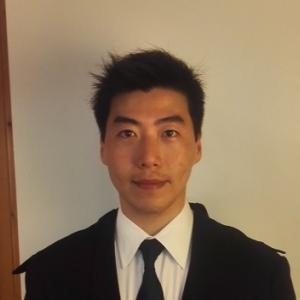Round-table discussion with Canada's Chief Science Advisor Dr Mona Nemer at Canadian High Commission
Associated people

UCL STEaPP Research Fellow and Oxford OBOR Coordinator for the Digital Economy & Society programme, Dr Alex Chung, was invited to participate in a round-table discussion with Canada's Chief Science Advisor, Dr Mona Nemer, on 9 February 2018. Organised by Ms Nicole Lunstead, First Secretary (Commercial) and Trade Commissioner at Global Affairs Canada and the Canadian High Commission in the UK, the event took place in Canada House near Trafalgar Square, London.

Along with eight UK-based Canadian academics from the Universities of Oxford, Cambridge, Imperial College London and University College London - the latter where Dr Chung is currently carrying out the majority of his research - the researchers learned about the emerging trends in Canada’s Science and Innovation Sector from Dr Nemer and shared their views with her on what Canada can learn from the UK research and education systems.

During the meeting, Dr Chung discussed the challenges faced by UK Government policymakers working in cybersecurity due to the multifaceted and rapidly changing landscape of threats, risks, and vulnerabilities in the digital domain. This is further complicated by the varied and voluminous nature of evidence sources consulted by law enforcement authorities and policymakers who need to formulate strategies in dealing with cybercrime and ensuring cybersecurity. Dr Nemer emphasised that the development of artifical intelligence (AI) technologies has taken top priority in Canada's public, private and education sectors. Globally, there is a race between countries to advance and use AI technologies in different ways to benefit societies, she said.

Dr Nemer drew the discussion to a close by asking the researchers for recommendations to take back to the Prime Minister of Canada, Justin Trudeau. In particular, she sought advice on how the experience of Canadian scholars who are currently conducting science-related research in the UK, and those who seek to come to the UK, could be enhanced. The group unanimously agreed upon one potential area of improvement, which is to focus on channels of communication for academic funding opportunities between the two countries. To this end, networks of information sharing and exchange could be coordinated by the High Commission and jointly facilitated by partnering academic institutions, said Dr Karen Edge, UCL Pro-Vice-Provost International.
Such an initiative would benefit the Canadian community at his UCL Department STEaPP, noted Dr Chung, and he also took the opportunity to highlight the need for overseas funding programmes aimed at interdisciplinary studies with a combined science and public policy focus, citing the example of the Science, Technology, and Engineering Policy Advice Module within the Master's in Public Administration degree programme offered by UCL STEaPP. Finally, Dr Nemer concluded the meeting by encouraging the young researchers to keep working hard at making a difference in the world and to be the voice for positive change wherever it is needed.


